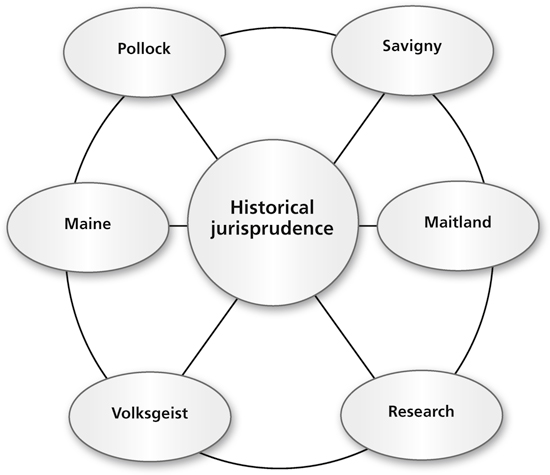The historical school
The Historical School

1. Friedrich Karl von Savigny (1779–1861) was one of the founders of the European historical school, which believed it was important to study the will and shared consciousness of different people to understand the real nature of their laws.
2. It was necessary to discover the people’s spirit (Volksgeist), and positive law is based on their common consciousness, the two keys to understanding thus being people and their spirit, the latter differing from one folk to another.
3. He based this on a deep study of Roman law, and his historical approach is evidenced in Of the Vocation of Our Age for Legislation and Jurisprudence (1814), in which he opposed the then Germanic trend towards codification of the law (because of Napoleonic influence).
4. The Volksgeist reflects what people need as the true basis of their laws, based on their history, experience, current conditions and aspirations.
5. From a legal point of view the roots of national consciousness originate in customs, although this approach goes against European continental rationalism.
6. Such a developed system required lawyers and judges to represent and interpret the law on behalf of the people in a role somewhat akin to trusteeship.
7. In practical terms he was opposed to the effects of the French Revolution and its teachings, which is one of the reasons he based his views on what he considered to be the eternal values of the Roman past’s Corpus Iuris and the contemporary spirit of the German people.
8. Criticisms of von Savigny are based on a number of factors including:
(a) the illogicality of relying and basing theory on Rome’s legal past whilst at the same time arguing for a contemporary German Volksgeist
(b) failure to adequately define his terms
(c) over-reliance on the importance of custom
(d) the idea that lawyers operate as trustees for the people
(e) the inutility of his ideas of historical investigation to justify law, which placed more importance on origins than current law and practice